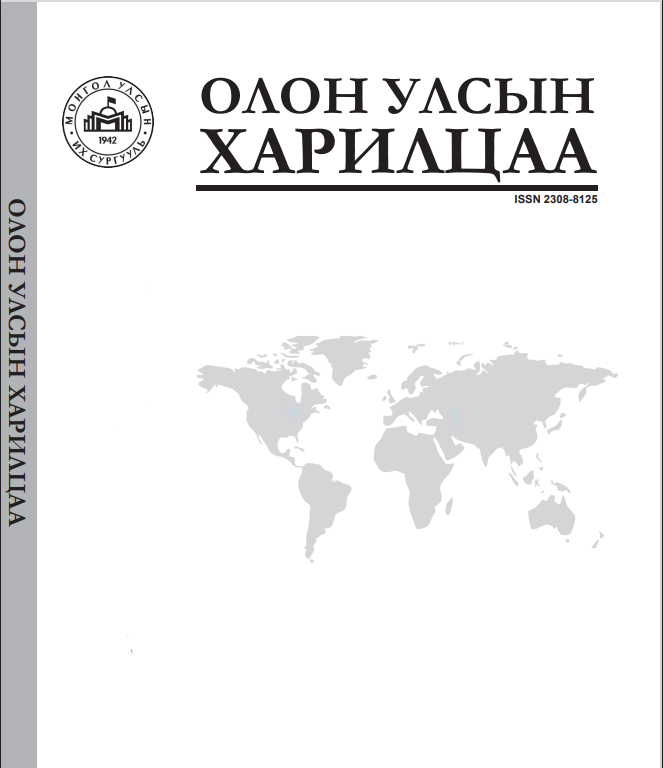The Necessity of the Dispute Settlement Mechanism in Intergovernmental Organizations: An Example of Shanghai Cooperation Organization Agar-Erdene.G
Main Article Content
Abstract
This article explores the UN-oriented international legal order as the fundamental reason for justifying the necessity of the dispute settlement mechanism in intergovernmental organizations. In that case, provisions of the Charter of the United Nations are seen as the primary reference for all intergovernmental organizations. Among them, however, the Shanghai Cooperation Organization (CSO) partially inherits this practice and a dispute settlement mechanism is not permitted within its structure. Under this circumstance, it will further discuss the unique nature of the settlement of disputes within the SCO.
Downloads
Article Details
References
Evans, M. and P. Koutrakos, Beyond the established legal orders : policy interconnections between the EU and the rest of the world, Oxford, Hart Publishing, 2011.
McBeth, A., Nolan, J., and S. Rice, The International Law of Human Rights, Australia and New Zealand, Oxford University Press, 2011.
Merrills, J. G., International Dispute Settlement. 5th ed. Cambridge, Cambridge University Press, 2011.
United Nations, Handbook on the Peaceful Settlement of Disputes between States. New York, United Nations Publication, 1992.
Alter, K. J. and L. Hooghe, ‘Regional Dispute Settlement Systems’ in T. A.Borzel and T. Risse (ed.), Oxford Handbook of Comparative Regionalism, Oxford, Oxford University Press, 2016, pp. 538-558.
Burchill, R., ‘Regional organizations and the UN legal order’, in International Organizations and the Idea of Autonomy, Taylor and Francis, 2011, pp. 316-430.
Al-Qahtani, M., ‘The Shanghai Cooperation Organization and the Law of International Organizations’, Chinese Journal of International Law, vol. 5, no. 1, 2006, pp. 129-147.
Aris, S., ‘A new model of Asian regionalism: does the Shanghai Cooperation Organisation have more potential than ASEAN?’, Cambridge Review of International Affairs, vol. 22, no. 3, 2009, pp. 451-463.
Azarkan, E., ‘The Interests of the Central Asian States and the Shanghai Cooperation Organization’, Ege Academic Review, vol. 10, no. 1, 2010, pp. 395-420.
Hooghe, L. and G. Marks, ‘Delegation and Pooling in International Governmental Organizations’, The Review of International Organizations, vol. 10, no. 3, 2014, pp 305-328 Kembayev, Z., ‘Towards a Silk Road Union?’, Chinese Journal of International Law, vol. 15, no. 3, 2016, pp. 691-699. Klabbers, J., ‘Unity, Diversity, Accountability: The Ambivalent Concept of International Organisation’, Melbourne Journal of International Law, vol. 14, 2013.

